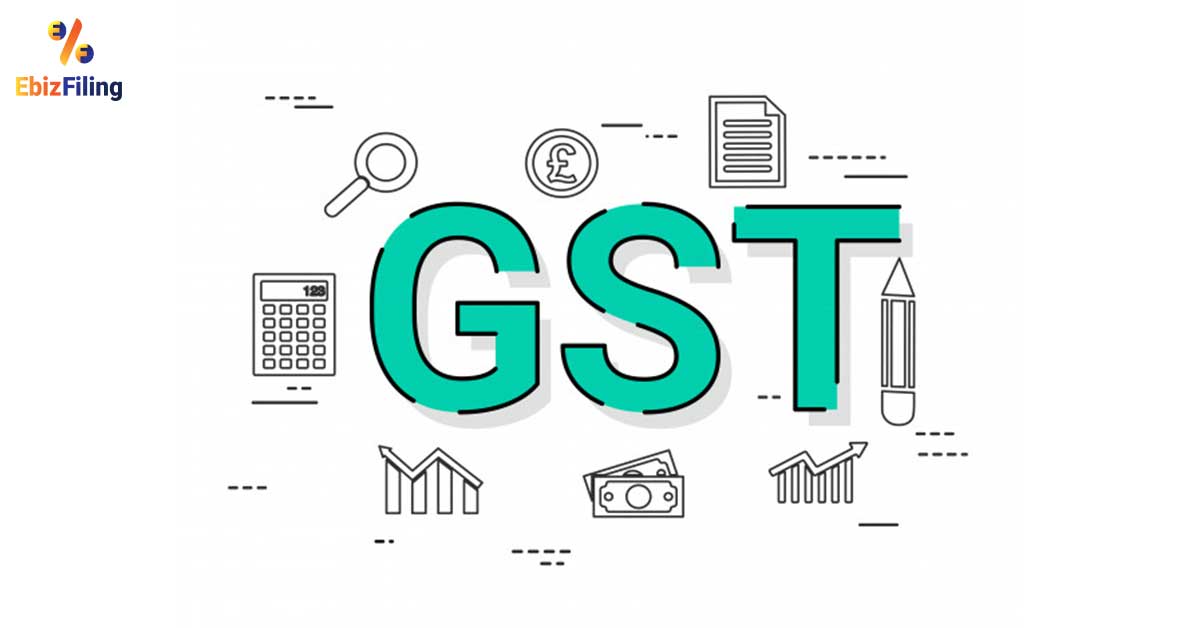
-
June 18, 2025
Everything About GST Registration of Pvt Ltd Company
Introduction
Taxes can feel like a tiresome trap, but it’s something you can’t skip. If you have started a Private Limited Company, GST Registration is a must for you. From avoiding penalties to claiming tax credits, GST adds credibility and compliance to your business. Here’s a updated introductory guide to make the process clear and quick.
What is GST? Why it Matters?
GST (Goods and Services Tax) is a unified indirect tax levied on the supply of goods and services across India. It replaces multiple state and central taxes, simplifying the tax structure for businesses. Every eligible business, including Private Limited Companies, must obtain GST registration to collect and pay GST legally.
Private Limited Companies must register for GST if their yearly income crosses a set limit or if they sell in different states. GST allows them to legally do business, issue proper bills, and claim back the tax paid on business purchases. It also shows that the company follows tax rules and avoids penalties. Having a GST number builds trust with customers, vendors, and other businesses.
Who needs GST Registration?
- Turnover above threshold – Companies with annual revenue over ₹40 lakhs (₹20 lakhs for services) must register. For some northeastern states, the limit is ₹20 lakhs or ₹10 lakhs.
- Interstate supply of goods or services – If your company sells across state borders, GST registration is mandatory, even below the turnover limit.
- Online or e-commerce sales – Companies selling on e-commerce platforms, or through their own websites, need GST from the first sale.
- Import and export businesses – GSTIN is needed to export goods or services and to claim GST refunds on imports.
- Reverse charge transactions – If your business falls under Reverse Charge Mechanism, you must register to pay GST on such purchases.
- Voluntary registration – Even if not required, companies can register to claim input tax credit and build business credibility.
Benefits of GST Registration
- Legal Compliance – Keeps your business aligned with GST law.
- Input Tax Credit – Allows you to claim GST paid on purchases.
- Wider Market Access – Enables interstate and online sales.
- Improved Credibility – Builds trust with clients, vendors, and banks.
- Easier Expansion – Helps in scaling business across India without tax hurdles.
- Participation in Tenders – Essential for applying to government or big contracts.
Documents Required GST Registration of Pvt Ltd Company
- Certificate of Incorporation: Issued by the Ministry of Corporate Affairs.
- PAN Card of the Company: Permanent Account Number issued by the Income Tax Department.
- PAN and Aadhar of Directors: Identity proof of authorized signatories.
- Address Proof of Business Place: Utility bill, rent agreement, or property papers.
- Bank Account Details: Cancelled cheque or bank statement of the company.
- Digital Signature (DSC): Mandatory for authorized signatory while filing online.
- Board Resolution or Letter of Authorization: To authorize a person to act on behalf of the company.
Step by Step Process GST Registration Of Pvt Ltd Company
- Step 1: Visit GST PortalGo to the official website www.gst.gov.in and click on ‘Register Now’.
- Step 2: Fill Part A of the formEnter basic details like PAN, email, and mobile number to generate a Temporary Reference Number (TRN).
- Step 3: Fill Part B with documentsLog in using the TRN and upload business details, address proof, bank info, and required documents.
- Step 4: Verify through DSC or EVCSubmit the application using Digital Signature Certificate (DSC) or Electronic Verification Code (EVC).
- Step 5: ARN GenerationAfter submission, you’ll receive an Application Reference Number (ARN) on your email and mobile.
- Step 6: GST Officer ReviewA GST officer will review your application and may ask for clarification or extra documents.
- Step 7: GSTIN AllotmentIf everything is in order, you’ll receive your GSTIN (Goods and Services Tax Identification Number) and GST registration certificate on your registered email.
Post Registration Compliances
- Display GSTIN at business premises: Your GST number must be displayed outside your office or shop.
- Issue GST-compliant invoices: All invoices must include your GSTIN, invoice number, tax breakup, and other mandatory details.
- File GST returns regularly: You must file monthly or quarterly returns like GSTR-1, GSTR-3B, and an annual return (GSTR-9) as applicable.
- Maintain proper records: Keep records of sales, purchases, tax paid, and input tax credit for at least 6 years.
- Update changes with GST department: Any change in business details (address, contact info, directors) must be updated on the GST portal.
- Reverse charge compliance: If reverse charge applies to any transaction, ensure timely payment and reporting.
Penalties for Non-Registration
- Fixed Penalty: If a Private Limited Company is liable to register but fails to do so, it can face a penalty of ₹10,000 or 10% of the tax due, whichever is higher.
- Penalty for Intentional Evasion: If the failure to register is found to be deliberate, the penalty may go up to ₹10,000 or 100% of the tax due, whichever is higher.
- Continuous Interest on Tax Dues: Interest is charged on unpaid tax from the due date till payment is made.
- Legal Consequences: Operating without GST when required may also lead to departmental action, audits, and restricted business opportunities.
How EbizFiling Can Help with GST Registration & Compliance?
- Expert Consultation: Get guidance on whether your Private Limited Company needs GST registration and under which category.
- End-to-End Registration Support: From document collection to final GSTIN allotment, our team handles the complete process.
- Error-Free Filing: We prepare and file your GST returns accurately and on time, helping you avoid penalties.
- Dedicated Compliance Reminders: Receive regular alerts on due dates for GSTR filings and updates from GST authorities.
- Ongoing Support: Get help with amendments, cancellations, and post-registration changes anytime you need.
Conclusion
GST registration is essential for any growing Private Limited Company. It builds trust, ensures tax compliance, and helps you operate across India. With EbizFiling by your side, the process becomes smooth, quick, and error-free, from registration to return filing. Let us handle the tax work while you focus on your business.
Suggested Read :
Monthly Compliance for Pvt Ltd Company
Appoint a Director in a Pvt Ltd Company
Employee Structure of a Pvt Ltd Company
Checklist for Pvt Ltd Company Compliance
Director Appointment in Pvt Ltd Company
FAQs
1. Is GST registration mandatory for a Private Limited Company?
Yes, if your turnover exceeds the threshold limit or you deal in inter-state or online business.
2. What is the turnover limit for GST registration?
₹40 lakhs for goods and ₹20 lakhs for services (lower for special category states).
3. Can I voluntarily register for GST even if not required?
Yes, voluntary registration helps claim input tax credit and improves credibility.
4. How long does GST registration take?
It usually takes 3–7 working days after submitting all required documents.
5. Is Digital Signature Certificate (DSC) required?
Yes, DSC is mandatory for Private Limited Companies during GST application.
6. Can I sell on Amazon or Flipkart without GST?
No, GST registration is compulsory for selling through any e-commerce platform.
7. What happens if I don’t register under GST?
You may face penalties of ₹10,000 or 10–100% of tax due, whichever is higher.
8. What are the returns to be filed after GST registration?
Common returns include GSTR-1, GSTR-3B, and GSTR-9 (annual).
9. Can I make changes in my GST registration details later?
Yes, you can update business details, address, or directors via the GST portal.
10. How can EbizFiling help with GST registration?
EbizFiling offers end-to-end support for registration, document filing, and ongoing compliance.
GST Registration
Get GST no. for Pvt ltd company in simple steps with Ebizfiling
About Ebizfiling -










November 7, 2025 By Dhruvi D
GST Registration & Amendment Rules 2025: New Forms & Process Explained Introduction The process of GST registration and amendment of registration under GST has seen major updates through CBIC Notification No. 18/2025, effective 1st November 2025. The new Rule 9A […]
March 19, 2024 By Team Ebizfiling
All You Need To Know About HSN Code Of Horticulture Introduction Horticulture, encompassing the cultivation of plants for food, medicine, and aesthetic purposes, stands as a pivotal sector within agriculture, playing a vital role in economic sustenance and human welfare. […]
September 8, 2025 By Pallavi Dadhich
GST Registration for SEZ Units and Developers: A Complete Guide Introduction Goods and Services Tax (GST) is an indirect tax levied on the supply of goods and services in India. Special Economic Zones (SEZ) are designated areas that are set […]